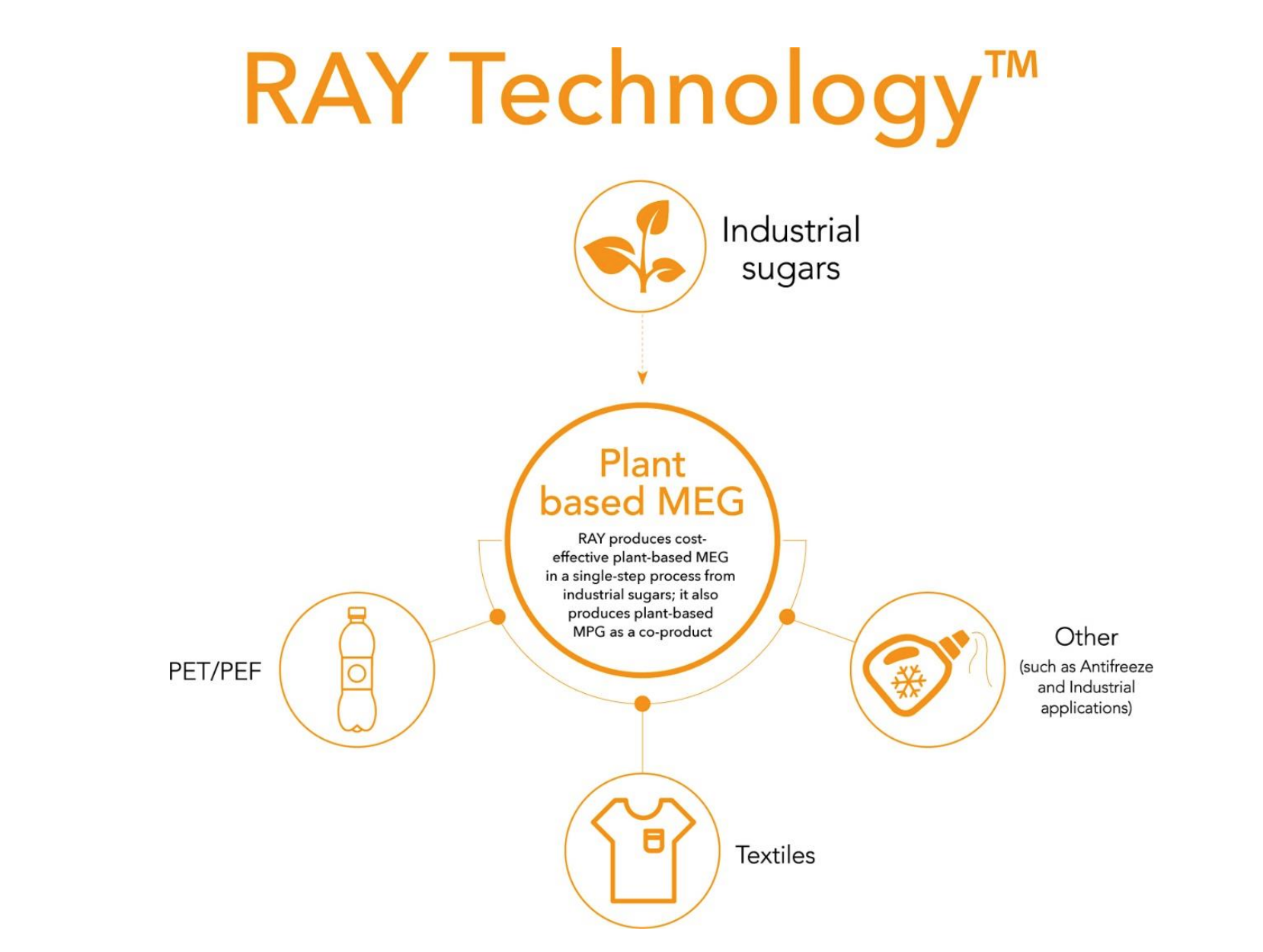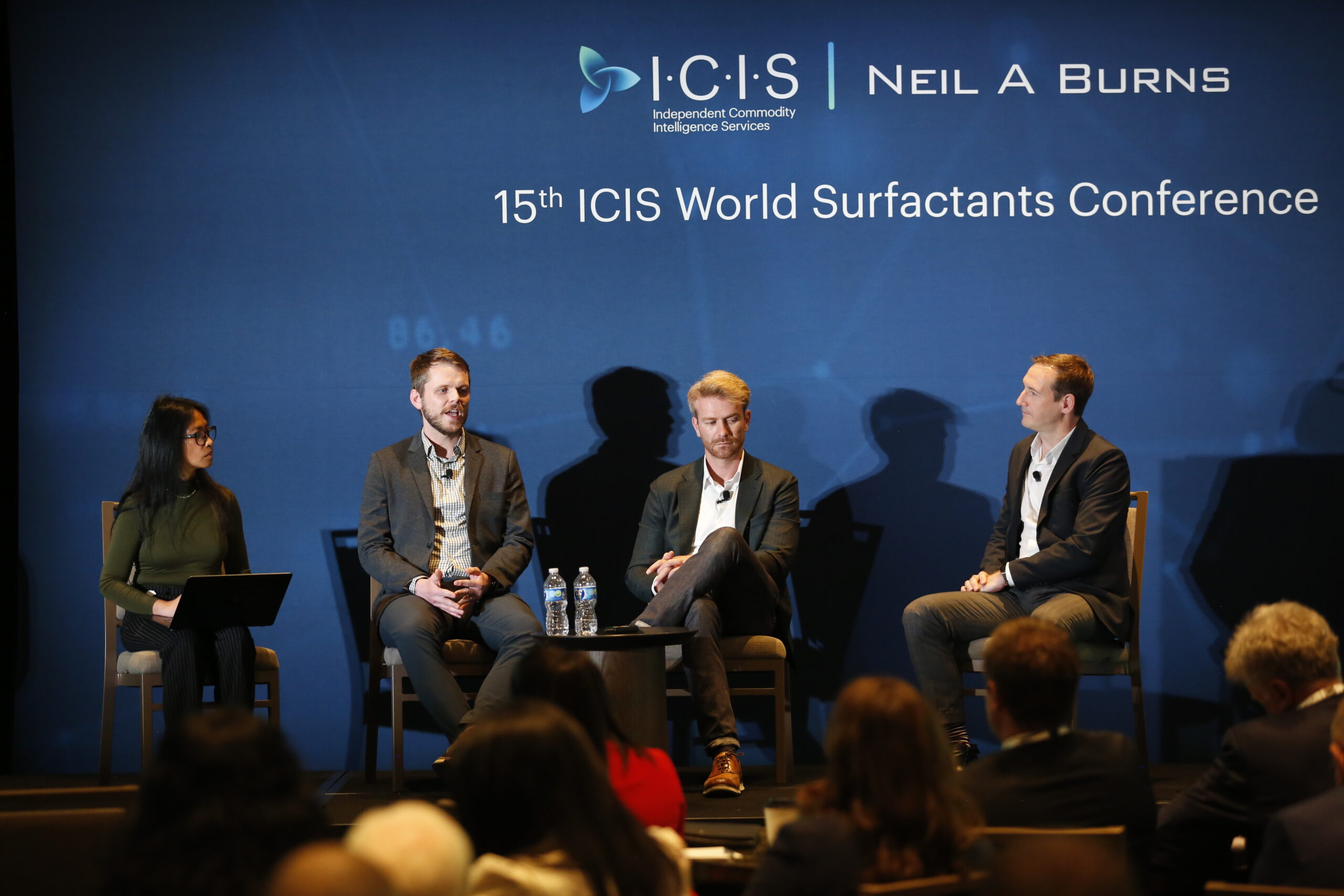The bio-based glycols market is slowly coming back to life with the addition of new capacities from several companies I’ve been covering these past few years. Last week, Avantium inaugurated its plant-based MEG (monoethylene glycol) demonstration factory in Chemie Park Delfzijl, the Netherlands, using a chemo-catalytic technology the company named Ray Technology™. The demonstration plant, with a capacity of 10 tons/year, will also produce plant-based MPG (mono-propylene glycol) which is used in a diverse set of industries such as cosmetics, pharmaceuticals, food flavoring, and deicing.
The end-to-end plant-based Ray Technology™ demonstration plant will cover all process steps in converting industrial sugars to glycols, allowing for the production of MEG and MPG samples that are representative of the final product from subsequent commercial-scale plants.
Avantium will use sugars from various 1st generation feedstock such as sugar beet, sugar cane, wheat, and corn, as well as 2nd generation non-food feedstock such as forestry or agricultural residues which is converted into sugars by Avantium’s Dawn Technology™. Internal calculations show that the production of plant-based MEG by Avantium’s Ray Technology™ reduces the CO2 equivalent with around 70% versus traditional production of fossil-based MEG. This equates to taking half a million passenger cars of the road per plant. This internal calculation will be validated by an independent Life Cycle Analysis (LCA).
Today, 99% of MEG is produced from fossil-based resources, representing a value of approximately $25 billion, according to Avantium. Market demand for MEG is expected to grow from 28 million to 50 million tonnes in the next 20 years; a global CAGR of 3.5%. This translates to over a million tonnes of additional MEG per year; for which roughly 60 new commercial plants around the globe will be needed.
Global demand for MPG is approximately 1.5-2 million tonnes per annum, with a year-over-year growth of around 2-3% until 2021.
Assuming successful results from the demonstration plant, Avantium aims to open a commercial flagship plant in 2024. Additionally, Avantium will commercialize Ray Technology™ by licensing it to manufacturers and brands wishing to produce and use plant-based MEG.
Avantium has signed several agreements to explore partnership opportunities in bringing its Ray Technology™ to full-scale commercialization globally. The Delfzijl plant-based MEG plant will serve as a demonstration facility for these potential partners.




